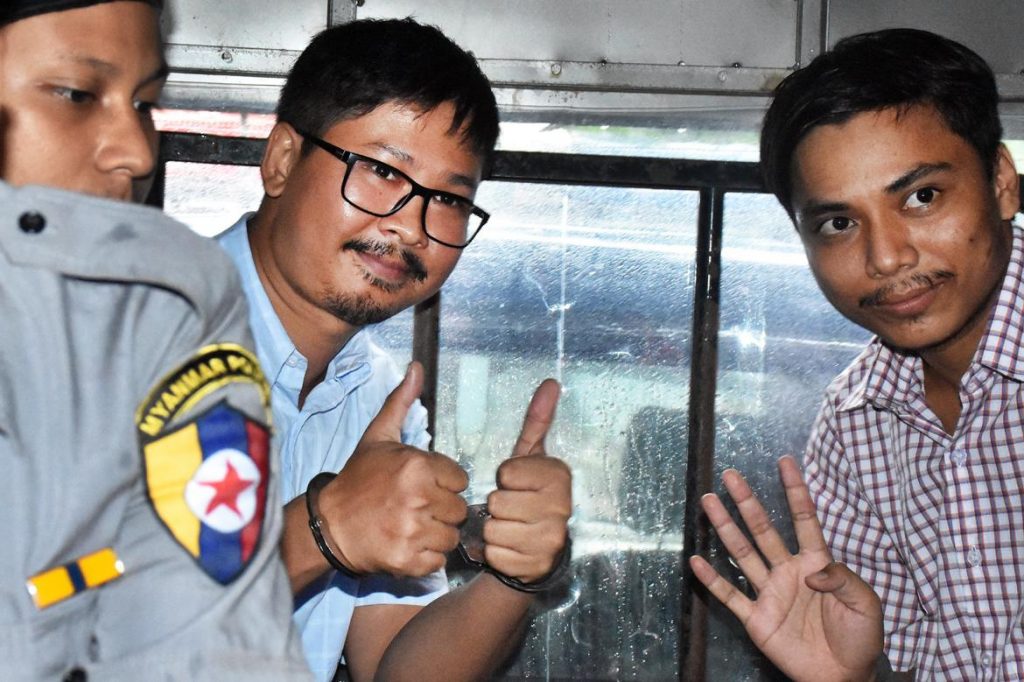Yangon: Two journalists Wa Lone, 33, and Kyaw Soe Oo, 29 belonging to this agency, jailed in Myanmar after they were convicted of breaking the ‘Official Secrets Act’ walked free from a prison on the outskirts of this city Tuesday after spending more than 500 days behind bars.
The two reporters had been convicted in September and sentenced to seven years in jail, in a case that raised questions about Myanmar’s progress toward democracy and sparked an outcry from diplomats and human rights advocates.
They were released under a presidential amnesty for 6,520 prisoners which was granted, Tuesday. President Win Myint has pardoned thousands of other prisoners in mass amnesties since last month.
This agency had repeatedly asserted that the two men did not commit any crime and had called for their release. Swamped by media and well-wishers as they walked through the gates of Insein Prison, a grinning Wa Lone gave a thumbs up sign and said he was grateful for the international efforts to secure their freedom.
“I’m really happy and excited to see my family and my colleagues. I can’t wait to go to my newsroom,” said Lone.
Soe Oo also smiled and waved to reporters, but did not say anything. The two were then driven away by colleagues and reunited with their wives and children.
Before their arrest in December 2017, they had been working on an investigation into the killing of 10 Rohingya Muslim men and boys by security forces and Buddhist civilians in western Myanmar’s Rakhine State during an army crackdown that began in August 2017.
The report the two men authored, featuring testimony from perpetrators, witnesses and families of the victims, was awarded the Pulitzer Prize for international reporting in May, adding to a number of accolades received by the pair for their journalism.
UN Secretary-General Antonio Guterres said he was relieved to learn of the release, a spokesman said. The United Nations in Myanmar said it saw the release as a sign of the government’s commitment to the transition to democracy.
It should be stated here that Myanmar’s Supreme Court had rejected the journalists’ final appeal in April. They had petitioned the country’s top court, citing evidence of a police set-up and lack of proof of a crime, after the Yangon High Court dismissed an earlier appeal in January.
The reporters’ wives wrote a letter to the government in April pleading for a pardon, not, they said, because their husbands had done anything wrong, but because it would allow them to be released from prison and reunited with their families.
